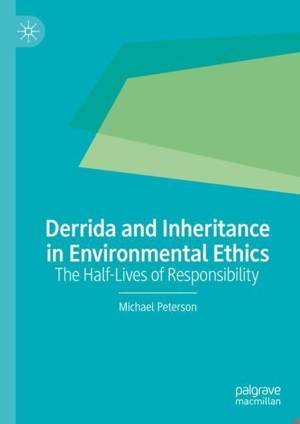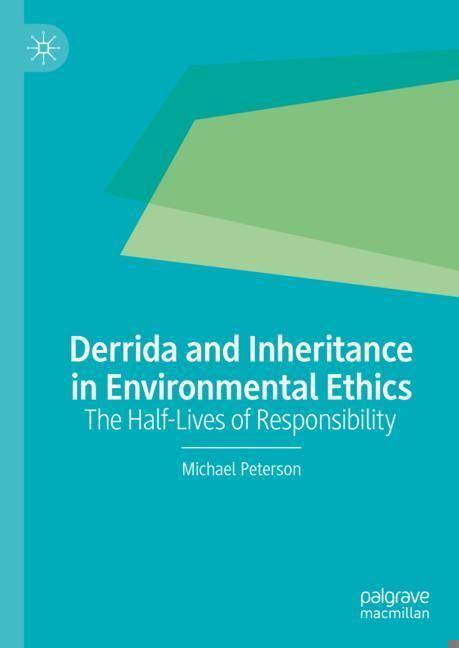
- Afhalen na 1 uur in een winkel met voorraad
- Gratis thuislevering in België vanaf € 30
- Ruim aanbod met 7 miljoen producten
- Afhalen na 1 uur in een winkel met voorraad
- Gratis thuislevering in België vanaf € 30
- Ruim aanbod met 7 miljoen producten
Derrida and Inheritance in Environmental Ethics
The Half-Lives of Responsibility
Michael PetersonOmschrijving
This book argues for the necessity of a re-evaluation of our thinking about responsibly relating to future generations in the context of environmental philosophy. Using long-term nuclear waste disposal as its paradigmatic case, this book makes the case that the predominant mode of thinking the future in terms of continuity and repetition of the present requires a critique informed by French philosopher Jacques Derrida in order to think responsibility adequately. The book begins by surveying contemporary accounts of intergenerational responsibility before outlining the specifics of nuclear waste disposal policy. With these stakes established, the contributions of Jacques Derrida to future-oriented ethics are introduced. These include discussions of communication across contexts, the relationship between inheritance and responsibility, and the political imperatives that result from this critique. This book concludes by arguing for an intergenerational environmental policy that rejectspolicy and infrastructural projects that depend on the present reproducing itself indefinitely.
Specificaties
Betrokkenen
- Auteur(s):
- Uitgeverij:
Inhoud
- Aantal bladzijden:
- 175
- Taal:
- Engels
Eigenschappen
- Productcode (EAN):
- 9783031521423
- Verschijningsdatum:
- 14/02/2024
- Uitvoering:
- Hardcover
- Formaat:
- Genaaid
- Afmetingen:
- 148 mm x 210 mm
- Gewicht:
- 376 g

Alleen bij Standaard Boekhandel
Beoordelingen
We publiceren alleen reviews die voldoen aan de voorwaarden voor reviews. Bekijk onze voorwaarden voor reviews.









